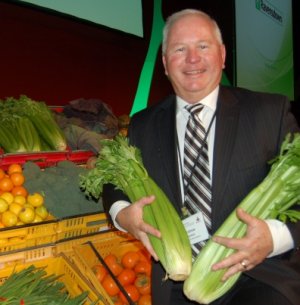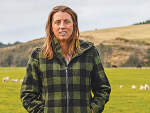Horticulture New Zealand's survival depends on a levy vote which closes in a week.
Commercial fruit and vegetable growers have until 5pm on Friday, September 28 to vote in the HortNZ levy referendum.
A positive result in the referendum is required to fund HortNZ activity for the next six years.
HortNZ will cease to exist without this funding, when the current levy order expires in June 2013.
Voting papers have been sent to all 6000 commercial fruit and vegetable growers.
The referendum is seeking approval for a grower levy of 15 cents for every $100 of sales on all fruit and vegetables, which is the same as the maximum levy rate in the current order.
This rate is forecast to raise about $2.5 million a year for HortNZ work on industry wide issues, like biosecurity policy, land and water use issues and seasonal labour needs.
The major change since the last referendum (in 2005) is that because HortNZ can no longer rely on the Fruitgrowers Charitable Trust to top up the fruit growers' levy, it is proposing that all growers pay the same levy rate.
This year fresh vegetable, potato, process vegetable and fresh tomato growers currently paying an integrated HortNZ and Product Group levy will receive at least two voting papers, one for the HortNZ levy and one for each additional product group levy. Growers must vote for both to continue to receive the same level of services.
"We are pleased with the way voting has progressed so far," says HortNZ president, Andrew Fenton.
"We just need every grower to show their support for HortNZ. Their voices will not be heard if we do not have HortNZ."











